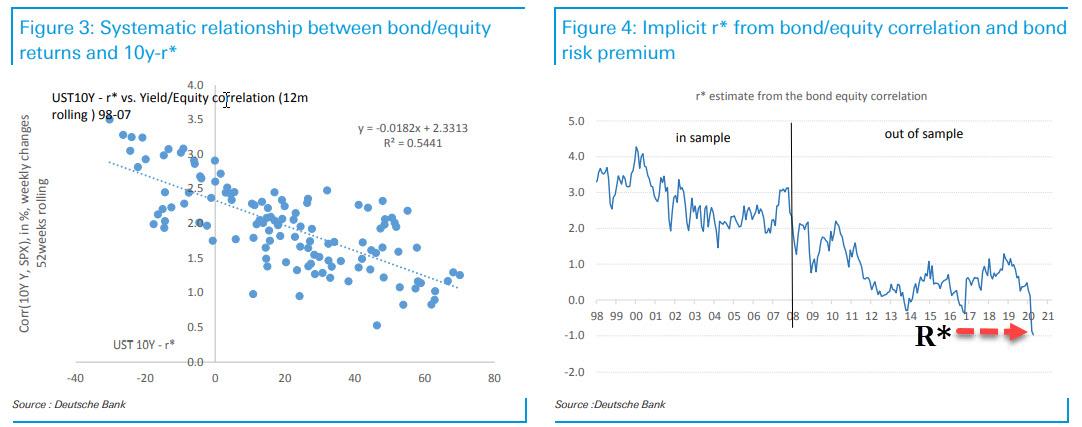992 Billion Reasons Why The Fed Needs Another Market Crash In The Next Few Weeks
Speaking in a video conference organized by the Peterson Institute, turbo money printer Jerome Powell today reassured the market that negative rates are not something the Fed – which expanded its balance sheet by $2.6 trillion in the past two months – is contemplating now. Of course, that will change after the next market crash or if economic shutdowns return, but for now the Fed’s message to traders was clear: don’t push forward fed fund rates negative, which also catalyzed today’s sharp market drop as a key source of potential forced easing was removed.
However, with Powell taking negative rates off the table (for now), it means the Fed has another problem on its hands, one which was first laid out by Deutsche Bank’s credit strategist Stuart Sparks, who in a recent note said that “for all the measures taken by the Fed and fiscal authorities to counter the COVID19 shock, policy remains too tight.” And, as Sparks adds, if the Fed opts to avoid negative policy rates – which appears to be the case – “further easing must be provided by the size and composition of the Fed’s balance sheet”, meaning more QE.
How much more QE? Well, with short-dated market real yields positive, Deutsche Bank estimates that r*, or the neutral rate of interest, has fallen to around -1%, “suggesting additional accommodation required for policy to be “easy” could be more than 100 bp in terms of “policy rate equivalent.“

Previously the Fed had estimated that $100 billion in QE has approximately the same short term impact on growth as 3 bps of rate cuts. This equivalence means that in order to provide a 1% of “rate equivalent” easing, the Fed would need to grow the balance sheet by roughly $3.3 trillion.